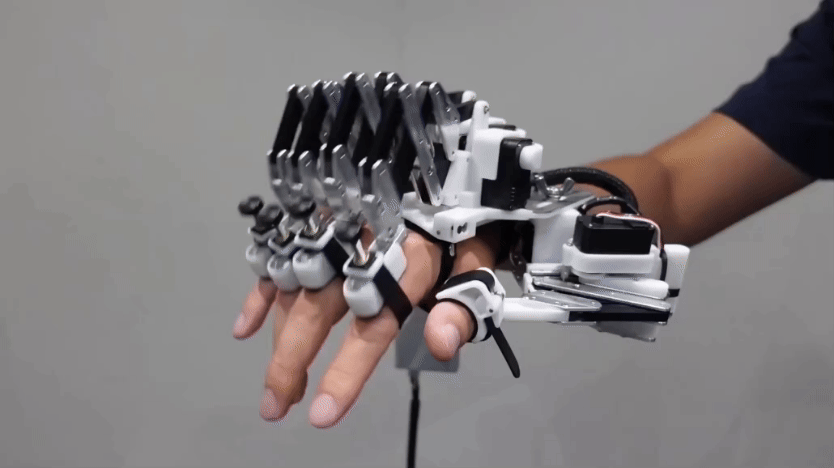Social networks can learn about you through your friends
True privacy is not possible when social networks can stalk you through friends’ accounts

You don’t have to be on a social network for your information to find its way there. Information from your friends can be used to infer information about you, creating a “shadow profile.”
shironosov/istockphoto
Some people might think that online privacy is, well, a private matter. If you don’t want personal information getting out online, then you can just not put it out there. Right? Wrong. Keeping your information private isn’t solely your choice anymore. Friends can play a big role in your privacy, new data show. And the more they share on a social network, the more that social network can figure out about you.
Someone who joins a social network — such as Snapchat, Instagram or Facebook —wants to find their friends. Often, the social network can help. Many apps offer to import contact lists from your phone or e-mail. These apps then use that information to find matches with people already in the network, and suggest them to you.
It’s very convenient. And sharing those contact lists seems harmless, notes David Garcia. He studies how people interact with social networks at the Complexity Science Hub Vienna, in Austria. “People giving contact lists, they’re not doing anything wrong,” he says. “You are their friend. You gave them the e-mail address and phone number.” Most times, you probably want to stay in touch with this person. You might even want to Snapchat them or see their Instagram pics.
But once that person shares a contact list with the social network, some information on everyone in that list is now being shared around. Even if someone on that contact list — you — didn’t want that information shared.
A social network can now use that information to create something called a shadow profile. This is a set of predictions about you. It’s based on all of that information from other people. The concept of a shadow profile first came to light with a Facebook bug in 2013. That bug shared the e-mail addresses and phone numbers of some 6 million users with all of their friends. Unfortunately, that information wasn’t supposed to go public. Oops.
Facebook fixed the bug. But it was too late.
Some users noticed that the phone numbers on their Facebook profiles had been filled in. But the users had never given Facebook their phone numbers, and had never put them on their profiles. The social network merely filled in the missing information for them. Facebook had collected those numbers from the contact lists innocently provided by a user’s friends.
A shadow profile had become reality.
It’s creepy. It is not, however, surprising that a social platform could take names, e-mail addresses and phone numbers and match them with users already on the network. But Garcia wondered if social networks would also be able to build shadow profiles of people who had never been on the network at all.
Internet archaeology
To find out, he turned to a now-defunct social network called Friendster. Launched in 2002, it was a social-networking site that preceded Facebook. In 2008, the social site boasted more than 115 million users. But the next year, people began jumping ship for other sites. By 2015, Friendster had shut down. Millions of abandoned public profiles vanished.
Or did they?
The Internet Archive is a nonprofit online library. It keeps records of more than 200 billion web pages. Web pages like Friendster. Garcia was able to use this site to retrieve data on 100 million public accounts from Friendster.
Story continues below video.
Garcia dug through the records in a process he calls Internet Archaeology. He named it after a satirical video from The Onion. In it, an internet archaeologist announces that he has (ironically) discovered Friendster. But internet archeology can be a real thing, Garcia explains. “The time scale of online media is very fast. But it’s still studying things in society that don’t exist anymore,” he adds.
Garcia hunted for friend links within Friendster’s data. Most people don’t have a random assortment of friends. Married people tend to be friends with other married people, for example. But people also have connections that complicate the ability to predict who is connected to whom. People who identified as gay men were more likely to be friends with other gay men. But gay men were also likely to be friends with women. Straight women were more likely to be friends with men.
From all of this information, Garcia was able to show that he could predict characteristics of people, even if those people were never on Friendster. He could predict things like whether someone was married, or whether they identified as gay. The more people in the social network who shared their own personal information, the more information the network received about their contacts. And its predictions about people not on the network got better, too.
“You are not in full control of your privacy,” he now concludes. If your friend is on a social platform, so are you. And you don’t have a choice in this matter. Garcia published his findings August 4 in the journal Science Advances.
Rethinking privacy
The new findings do not mean that social platforms are really making shadow profiles, Garcia notes. But with the data that people share with social networks, those platforms (such as Facebook or Snapchat) certainly could.
To prevent the data from his study being used this way, Garcia only used the most basic, public information from Friendster. He never predicted anything about specific people. He only checked to see if he could. Garcia also made his predictions very general. He chose to never create anything that could produce a shadow profile. This was his way of making sure that others cannot misuse his test data.
But his results do show that information from your friends on a social network could accurately predict many things about you. That could include if you were married, where you lived and your political opinions. And that’s information that you may not want anyone to know, let alone strangers in a social network to which you don’t belong.

“It’s a good illustration of an issue we have in society — which is that we no longer have control over what people can infer about us,” says Elena Zheleva. She is a computer scientist at the University of Illinois in Chicago. “If I decide not to participate in a certain social network, that doesn’t mean that people won’t be able to find things about me on that network.”
And that means we might need to think differently about what privacy means. “We’re used to thinking of having a private space,” Garcia says. “We think we’ve got a room with keys and we let some people in.”
But it might be more accurate, he argues, to imagine our personal information as wet paint. We are covered in wet paint of our own personal color. If we touch someone else, we leave a handprint in our unique paint color. “The more you touch other people, the more you leave on them,” he explains. Touch enough people, and anyone who looks at those people and the paint on them will be able to pick out your personal shade of teal or pink or gray.
And because we are no longer in full control of our privacy, Garcia notes, it also means that protecting privacy isn’t something any one person can do. “In some sense it resembles climate change,” he says. “It’s not something you can solve on your own. It’s everyone’s problem or its no one’s problem.”
So if we’re going to solve the privacy problem, we can’t just keep our information to ourselves. We’re going to have to change the digital world, too. How we will do it, though, will prove a big challenge.







